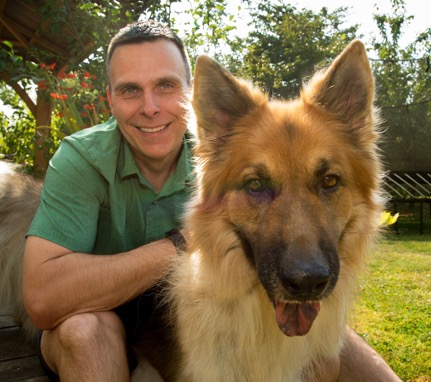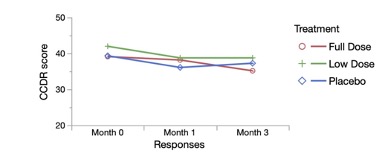Scientist Disagrees with David Sinclair’s Claims Regarding Dog Anti-Aging Supplement “Leap Years”
Leading authority on dog aging, Dr. Matt Kaeberlein, says Leap Years does not reverse dog aging like Harvard professor Dr. David Sinclair claims.
Key Points:
- In a press release from Animal Biosciences, David Sinclair is quoted as saying they have developed the first supplement “proven to reverse aging in dogs.”
- Matt Kaeberlein has said that this statement “is a lie” and has left a prestigious group for which Sinclair was president.
- Animal Biosciences has since corrected Sinclair’s quote so it does not say, “proven to reverse aging in dogs” and Sinclair has resigned as president.
Animal Biosciences, which Harvard professor David Sinclair, Ph.D., founded and of which his brother, Nick Sinclair is CEO, recently announced the results of their research evaluating the reversal of age-related signs in dogs. In the original press release, Dr. Sinclair was quoted as saying,
“I am very proud of the teams at NCSU and Animal Biosciences, who, after years of collaborative research and a clinical trial, have developed the first supplement proven to reverse aging in dogs.”

In response, University of Washington professor Matt Kaeberlein, Ph.D., said,
“The press release from Animal Biosciences is dishonest. This supplement has not been ‘proven to reverse aging in dogs’. That is a lie.”
Dr. Kaeberlein has long advocated for the development of products that slow the aging of dogs. He co-founded the Dog Aging Project, which has aimed to achieve this mission. He is also one of the leading experts in the field of aging biology research. As such, he was one of the world’s foremost adepts in canine age reversal science.

Kaeberlein goes on to critique the results of the Animal Bioscience funded study, which has not yet gone through the peer-review process. In the study, older dogs around the age of 12 with cognitive impairment were given either a placebo, a low-dose of Leap Years, or full-dose Leap Years. The dog’s owners assessed the cognition of their dogs using a rating scale called the canine cognitive dysfunction (CCDR) rating scale. The results showed that a high-dose of the drug decreased the CCDR score after 3 months of daily treatment, suggesting improved cognition.

However, Kaeberlein says these results are relatively weak. He also mentions that the CCDR has not been validated for repeated use, which is how it was used in the study. He says, “these are encouraging results, although hardly definitive.” He also points out that the product did not improve other outcomes measured by the researchers, such as physical activity.
Interestingly, after Kaeberlein posted these comments, the Animal Biosciences press release was corrected so that David Sinclair’s quote now reads,
“I am very proud of the teams at NCSU and Animal Biosciences, who, after years of collaborative research and a clinical trial, have developed the first supplement shown to reverse the effects of age-related decline in dogs.”
In response to this change, Kaeberlein commented,
“To me, this seems even more problematic than the original quote, as it indicates clear, pre-meditated intent. David had the opportunity to rethink his quote and interpret this pre-print honestly, but instead chose the opposite path. Our field should be better than this @ahlresearch”
In this X post (formerly Twitter), Kaeberlein calls out “@ahlresearch,” the X account for the Academy of Health and Lifespan Research (AHLR). The AHLR is a global elite group of longevity scientists and doctors that Sinclair leads. A few days following the Animal Biosciences press release Kaeberlein renounced his membership to the AHLR, saying,
“I find it deeply distressing that we’ve gotten to a point where dishonesty in science is normalized to an extent that nobody is shocked when a tenured @Harvard professor falsely proclaims in a press release that a product he is selling to pet owners has ‘reversed aging in dogs’. To me, this is the textbook definition of snake oil salesman.”
He goes to say,
“I do believe we can and should demand, at a minimum, honesty and integrity from our scientific leaders… I have renounced my membership in the Academy due to ongoing behavior by Academy President Dr. David Sinclair that I find both personally and professionally unacceptable. While I can’t control how others will behave, I choose not to associate with individuals or organizations that do not align with my core values.”
As a result of this controversy, perhaps including a video released by Dr. Brad Stanfield explaining other scientific wrongs committed by Sinclair, it was recently announced that Sinclair has resigned as president of the AHLR.
Playing the Heart Strings of Dog Owners?
Is David Sinclair exploiting the hopes of dog owners? This would not be the first time he has received backlash for overhyping the results of a study and biochemist Dr. Charles Brenner has been a vocal critic of Sinclair’s best-selling book.
Certainly, more rigorous studies will be needed to confirm that Leap Years can improve the cognition of older dogs with cognitive impairment. The data so far suggest that the dog anti-aging supplement may reduce certain behaviors associated with cognitive impairment. It is best to speak with a veterinarian before trying new pet supplements.

